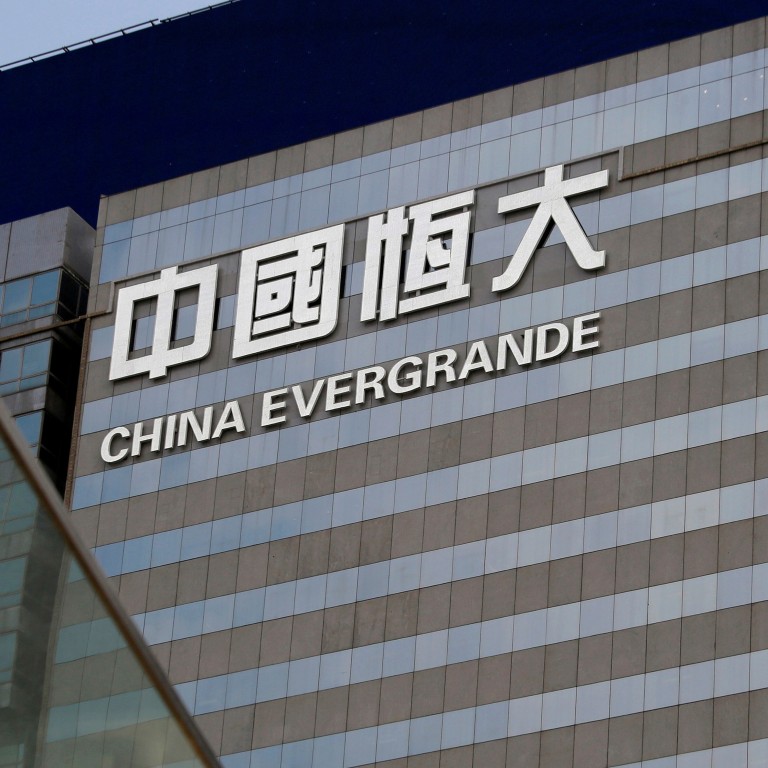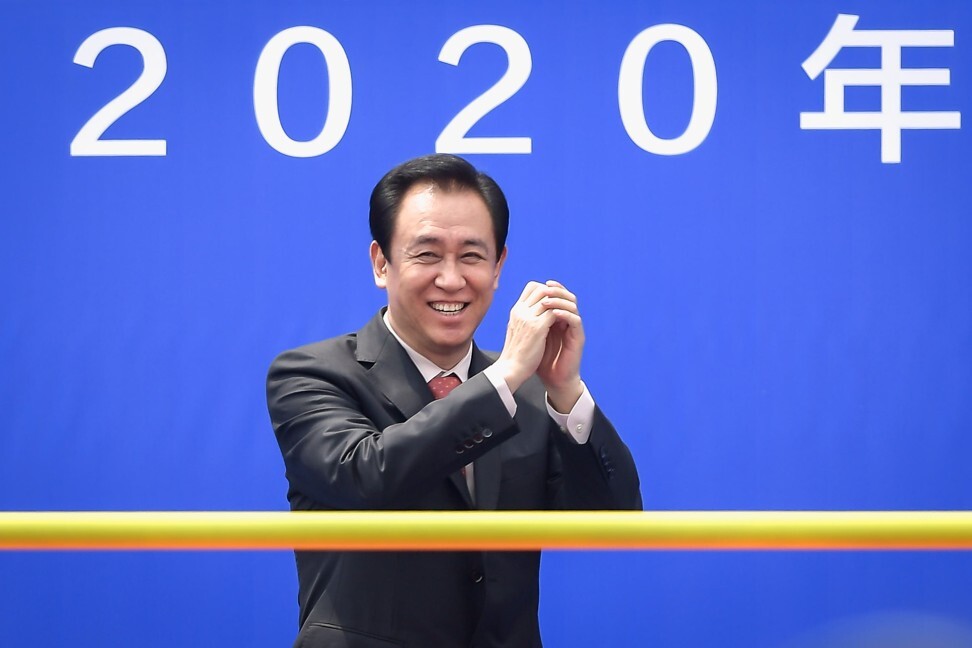
China Evergrande sells Guanghui stake to Shenergy in asset disposal plan after breaching central bank’s ‘red lines’ on debt
- China Evergrande said it would sell its 41 per cent stake in Xinjiang Guanghui for 14.9 billion yuan to Shanghai’s electricity generator Shenergy
- Evergrande bought the Guanghui stake in 2018 for 14.5 billion yuan
China Evergrande Group, the world’s most indebted real estate developer, has agreed to sell an investment a little more than two years after buying it, part of its asset disposal programme to generate cash and repay more than 835.5 billion yuan (US$122 billion) of borrowings.
The Guangzhou-based developer said it would sell its 41 per cent stake in Xinjiang Guanghui Industry Investment Group, an energy-to-property conglomerate based in north-western China, for 14.9 billion yuan to Shanghai’s electricity generator Shenergy. Evergrande bought the stake in 2018 for 14.5 billion yuan.
“Shenergy will take over all of the shares bought by Evergrande in 2018 and become Xinjiang Guanghui’s second-largest shareholder,” Guanghui said in a filing to Shanghai’s stock exchange on Sunday. The disposal enables it to focus more on its core business and achieve “long-term stable and healthy development,” Evergrande said separately in a filing to the Hong Kong bourse.
Evergrande, China’s largest property developer by sales, is attempting to slim down after facing the risk of having to cough up 130 billion yuan by the first quarter of next year if demanded by investors who had put money into its Hengda unit in anticipation of its successful takeover of Shenzhen Special Economic Zone (SEZ) Real Estate & Properties Group.

On the same day, Evergrande’s chairman was photographed in Beijing at a signing ceremony with representatives from more than a dozen of Hengda’s investors. They included Zhang Jindong, chairman of Suning.com, one of China’s largest home-appliance retailers, and Wang Wenyin, a copper tycoon who controls the private Amer International Group.
Evergrande had already breached the Chinese central bank’s threshold for indebtedness, known as the “three red lines” in the industry, according to an analysis by Huachuang Securities. The framework caps debt-to-asset ratio for developers at 70 per cent after excluding advance receipts, net debt-to-equity at 100 per cent, and short-term borrowings at no more than cash reserves.

Failing to meet those “red lines” may result in them being cut off from access to new loans from banks, the state-owned Economic Information Daily reported in late August.
Evergrande last month raised HK$4.3 billion at a 14.7 per cent discount to the market price by selling new shares equivalent to 2 per cent of its issued capital, to refinance debt. Its shares closed last Friday at HK$15.4 each, 6.7 per cent below the shares’ selling price, and just over half the HK$28 high seen in early July.
Evergrande, controlled by China’s third-wealthiest man Xu Jiayin – also known as Hui Ka-yan in Hong Kong – offered an across-the-board discount of 30 per cent for all its property projects in September, to generate 200 billion yuan of sales. The developer sold about 582 billion yuan worth of properties up through October, achieving 91 per cent of its full year sales target of 650 billion yuan.
Guanghui recorded a net profit of 5 billion yuan in 2018 and a profit of 3.2 billion yuan in the first three quarters of 2019. It owns a liquefied natural gas import terminal in Jiangsu province, 130 kilometres northwest of Shanghai. It is undergoing a 4.8 billion yuan expansion to become capable of handling 10 million tonnes of the fuel and generating 40 billion yuan of sales by 2023, according to Secu rities Times.
Shanghai-based and listed Shenergy has invested in 42 power plants in eastern and northern China with total capacity of 11.5 gigawatts, including almost a third of Shanghai’s generating capacity.
Its production, storage and distribution facilities also supplies around 90 per cent of Shanghai’s natural gas needs.


